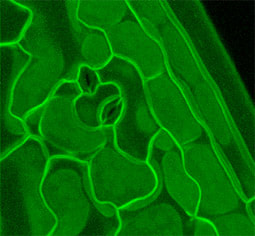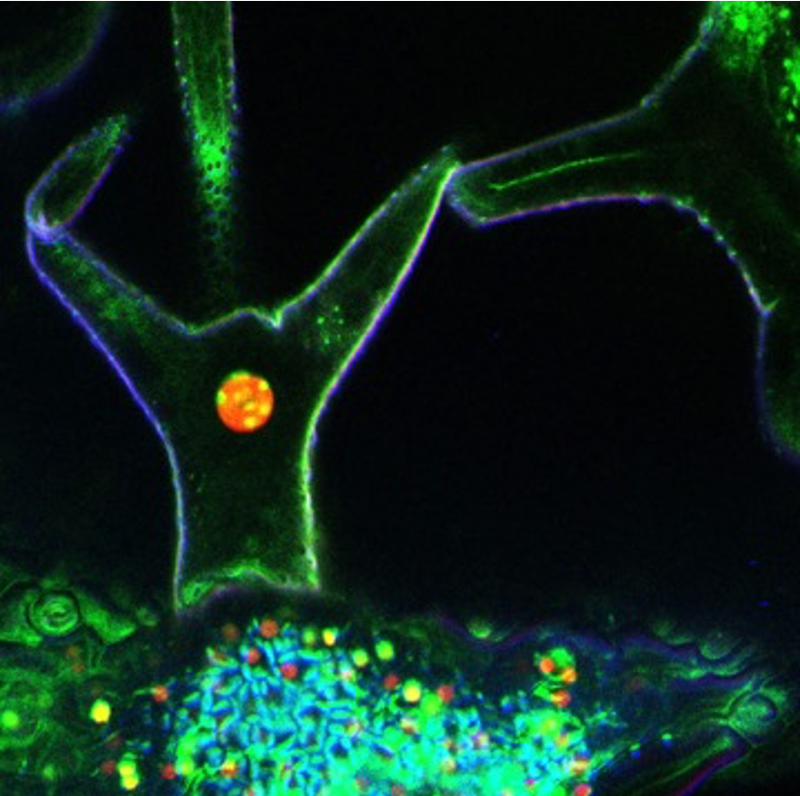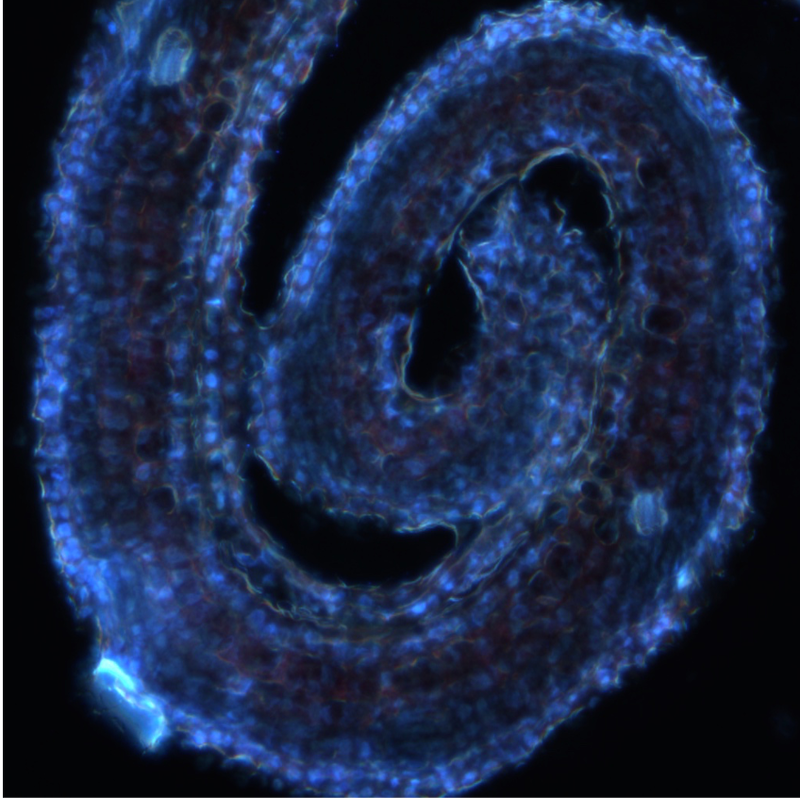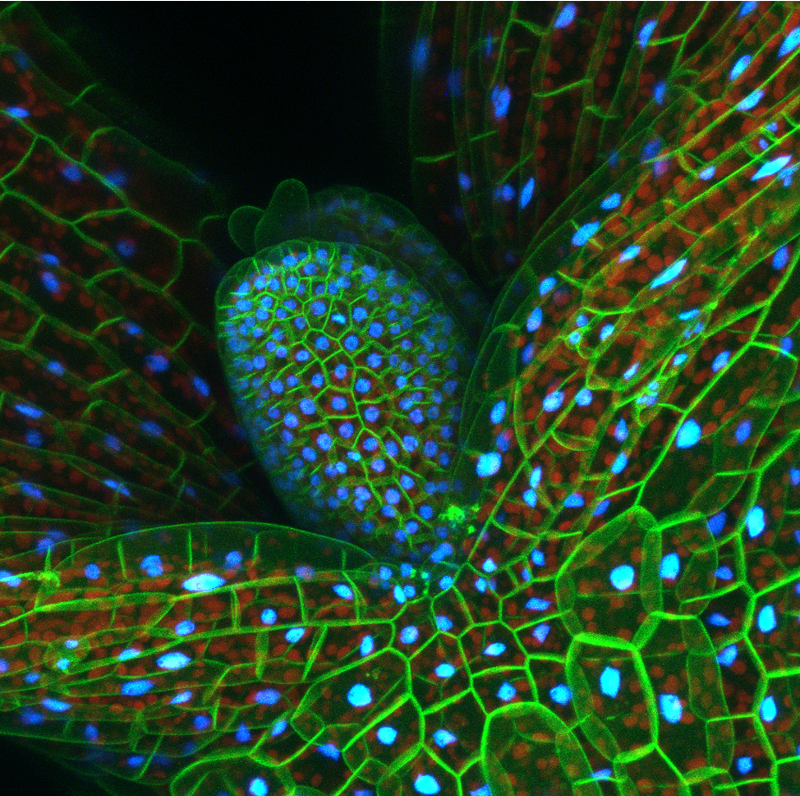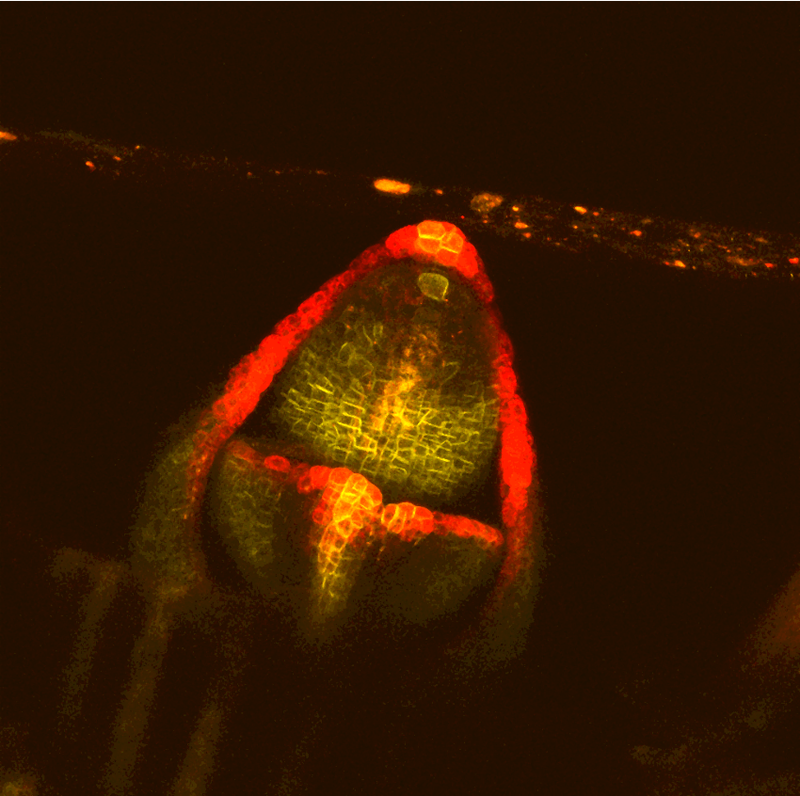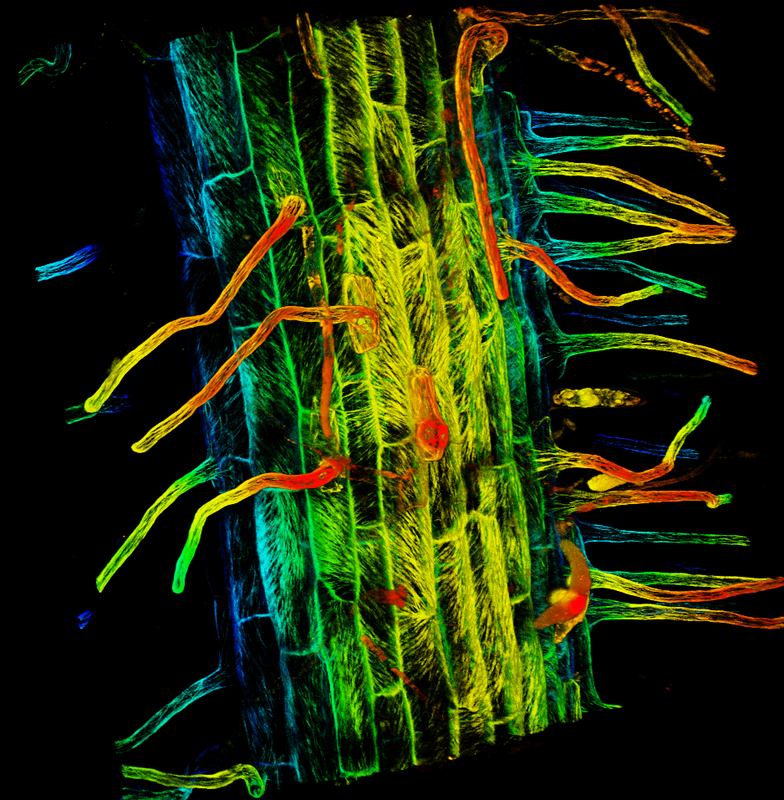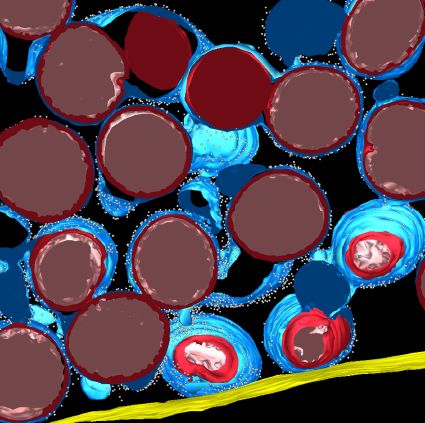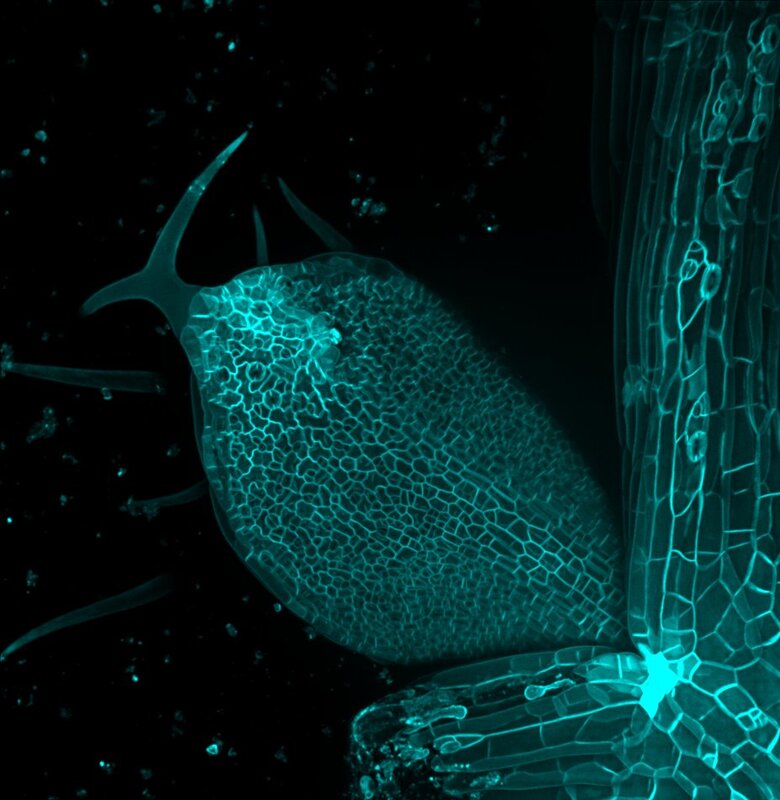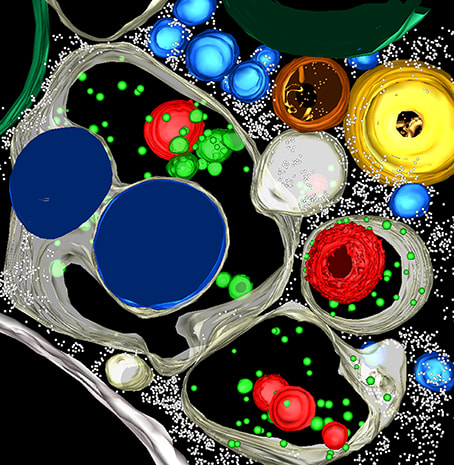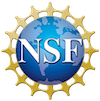Hackathon Description
The PCA SynBio Hackathon is a time-bound competitive event in which participants will work to design synthetic genetic circuits to program plants with new functions.
The Hackathon will commence with 90 minutes of training to equip participants with the latest synthetic biology knowledge and skills. Training will include genetic circuit design, how to design plasmids for synthesis, and methods of validating circuit function in planta. Following the initial training, participants will form teams that select a problem in plant biology (or in a team member’s research) to address with synthetic biology. Teams will design circuits and develop a pitch deck that explains the selected problem and solution. Organizers will be on hand to answer technical questions.
Teams will have ~20 hours to develop their pitch and construct designs. At the conclusion of the Day 2, all teams will make a 10-minute pitch about their design and its potential impact to a panel of mentors and judges, who will provide feedback and encouragement.
The best pitches will win free plasmid synthesis and the option to transform their designs into maize. DNA synthesis is being provided by Twist Bioscience and maize transformation by the Iowa State University Crop Bioengineering Center. Winning design(s) will be subject to final checks before commercial DNA synthesis. Participants will have the option to design plasmids for transformation into other plant varieties. These plasmids will be sent directly to participants (instead of ISU) and the participant will be responsible for transformation.
NOTE: Participants will be required to formally agree to receive and analyze any engineered plants that they should be awarded, including taking responsibility for import/export documentation (and costs) if applicable. They must also agree to write a report for the PCA on the outcomes of their experiments within 12 months of receiving plants. Finally, they must agree to acknowledge the support and assistance of the PCA in any resulting publications.
SynBio Hackathon Organizers
The Hackathon will commence with 90 minutes of training to equip participants with the latest synthetic biology knowledge and skills. Training will include genetic circuit design, how to design plasmids for synthesis, and methods of validating circuit function in planta. Following the initial training, participants will form teams that select a problem in plant biology (or in a team member’s research) to address with synthetic biology. Teams will design circuits and develop a pitch deck that explains the selected problem and solution. Organizers will be on hand to answer technical questions.
Teams will have ~20 hours to develop their pitch and construct designs. At the conclusion of the Day 2, all teams will make a 10-minute pitch about their design and its potential impact to a panel of mentors and judges, who will provide feedback and encouragement.
The best pitches will win free plasmid synthesis and the option to transform their designs into maize. DNA synthesis is being provided by Twist Bioscience and maize transformation by the Iowa State University Crop Bioengineering Center. Winning design(s) will be subject to final checks before commercial DNA synthesis. Participants will have the option to design plasmids for transformation into other plant varieties. These plasmids will be sent directly to participants (instead of ISU) and the participant will be responsible for transformation.
NOTE: Participants will be required to formally agree to receive and analyze any engineered plants that they should be awarded, including taking responsibility for import/export documentation (and costs) if applicable. They must also agree to write a report for the PCA on the outcomes of their experiments within 12 months of receiving plants. Finally, they must agree to acknowledge the support and assistance of the PCA in any resulting publications.
SynBio Hackathon Organizers
- Nicola Patron, University of Cambridge
- Jenn Brophy, Stanford University
- Alex Borowsky, University of California at Riverside
- Sarah Guiziou, Earlham Institute
- Marc Libault, University of Missouri
- Clay Wright, Virginia Tech
Event Details
Date: August 14-15, 2024
Time (EDT):
Start: afternoon of Aug 14, 2024 after the PCA Symposium concludes.
End: 2:00 PM on Aug 15, 2024
Location:
Michigan State University
East Lansing, MI USA
PCA Code of Conduct
Time (EDT):
Start: afternoon of Aug 14, 2024 after the PCA Symposium concludes.
End: 2:00 PM on Aug 15, 2024
Location:
Michigan State University
East Lansing, MI USA
PCA Code of Conduct
Eligibility
The hackathon is open to all non-faculty researchers (postgraduate students, postdoctoral researchers, research assistants, technicians) based at academic, government, or non-profit organizations. All hackathon attendees must register and attend the PCA symposium in person and may also submit an abstract for a poster or talk at that event.
Hackathon Application
Hackathon Application Deadline: April 30, 2024
There is no fee to apply to the Hackathon. However, you must register to attend the PCA Symposium in person in addition to the Hackathon. Learn more about the symposium and register here.
Places at the Plant SynBio hackathon will be limited to 24 researchers. To register your interest in participating, please use the button above to submit a paragraph of no more than 250 words, briefly describing your current work and how participation in the Hackathon will benefit your research and career goals. You must also include a sentence confirming that you have discussed attendance with your supervisor, and that they agree to support the analysis of any engineered plants that result from the hackathon.
Application statements should be no longer than 250 words submitted as a PDF or Word document. Please include:
Successful applicants will be notified by email by May 10th 2024, and must confirm attendance by May 31st 2024.
There is no fee to apply to the Hackathon. However, you must register to attend the PCA Symposium in person in addition to the Hackathon. Learn more about the symposium and register here.
Places at the Plant SynBio hackathon will be limited to 24 researchers. To register your interest in participating, please use the button above to submit a paragraph of no more than 250 words, briefly describing your current work and how participation in the Hackathon will benefit your research and career goals. You must also include a sentence confirming that you have discussed attendance with your supervisor, and that they agree to support the analysis of any engineered plants that result from the hackathon.
Application statements should be no longer than 250 words submitted as a PDF or Word document. Please include:
- Name
- Affiliation
- Statement on how participating in the Hackathon will benefit your research and career goals (250 word max).
- Includes a sentence confirming that you have discussed attendance with your supervisor, and that they agree to support the analysis of any engineered plants that result from the hackathon.
Successful applicants will be notified by email by May 10th 2024, and must confirm attendance by May 31st 2024.

